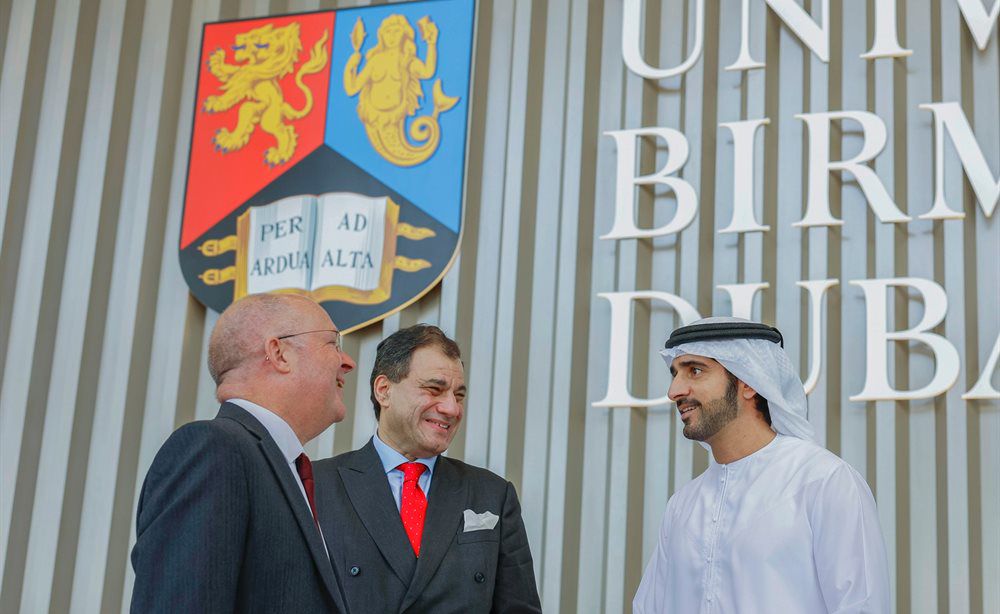Dubai has a rich history, with recent unparalleled growth across all sectors including Health, Education and Finance. It is also a very diverse city with up 200 Nationalities living in various communities across the Emirate.
Our culture of inclusivity is central to the University’s core values and is the foundation of our Dubai campus. The opening of the University of Birmingham Dubai signifies exciting opportunities to increase global collaboration and connectivity across diverse cultures. This provides a platform for our staff and students to further develop their cultural intelligence to interact and work effectively as members of a global university community.
It is paramount for any leading global university, like the University of Birmingham, to attract and retain top talent. This can only be made possible if we nurture an environment within which individuals from all backgrounds can thrive, flourish, and excel. This vision is best exemplified in Dubai’s population, with 90% of citizens calling the thriving city home as expatriates. It is, however, also crucial to ensure that local norms and customs relating to expectations and etiquette followed by the Dubai Emirate are appropriately and duly regarded by all members of the University. We recognise that this imposes a responsibility on the University to support our students as they become aware of the context and practices in Dubai and across the UAE.
While there are areas that understandably differ between cultures, the emphasis on tolerance and inclusivity is a shared value of our societies. Our Dubai campus will follow the same standards and principles as in Birmingham where equality is promoted, diversity is valued, and discriminatory behaviour is not tolerated. We are committed to safeguarding respect, fairness, and dignity of all individuals within our global operations.
 David Sadler, University of Birmingham Dubai Provost and Lord Karan Bilimoria, University of Birmingham Chancellor, with His Highness Sheikh Hamdan bin Mohammed bin Rashid Al Maktoum, Crown Prince of Dubai.
David Sadler, University of Birmingham Dubai Provost and Lord Karan Bilimoria, University of Birmingham Chancellor, with His Highness Sheikh Hamdan bin Mohammed bin Rashid Al Maktoum, Crown Prince of Dubai.
The UAE has a long history as an Arab State, and whilst it encompasses a mix of cultures and the diverse population, it remains first and foremost an Arab state, with a state religion of Islam, and laws, regulations and norms and customs that align with it. With a culture rooted in Arabic and Islamic tradition, it is important to be familiar with it so that everyone can co-exist harmoniously during their time in the UAE, maintaining respect for the way of life.
Students who come from outside the UAE are strongly reminded to be aware of the cultural and legal differences between the UK or their home countries. Such knowledge is particularly of importance to individuals who find themselves in minority groups or identify with one or more of the Protected Characteristics under UK equality legislation. There are also situational differences as the University can only extend institutional policies and practices within the scope of our operations, but not to the off-campus environment.